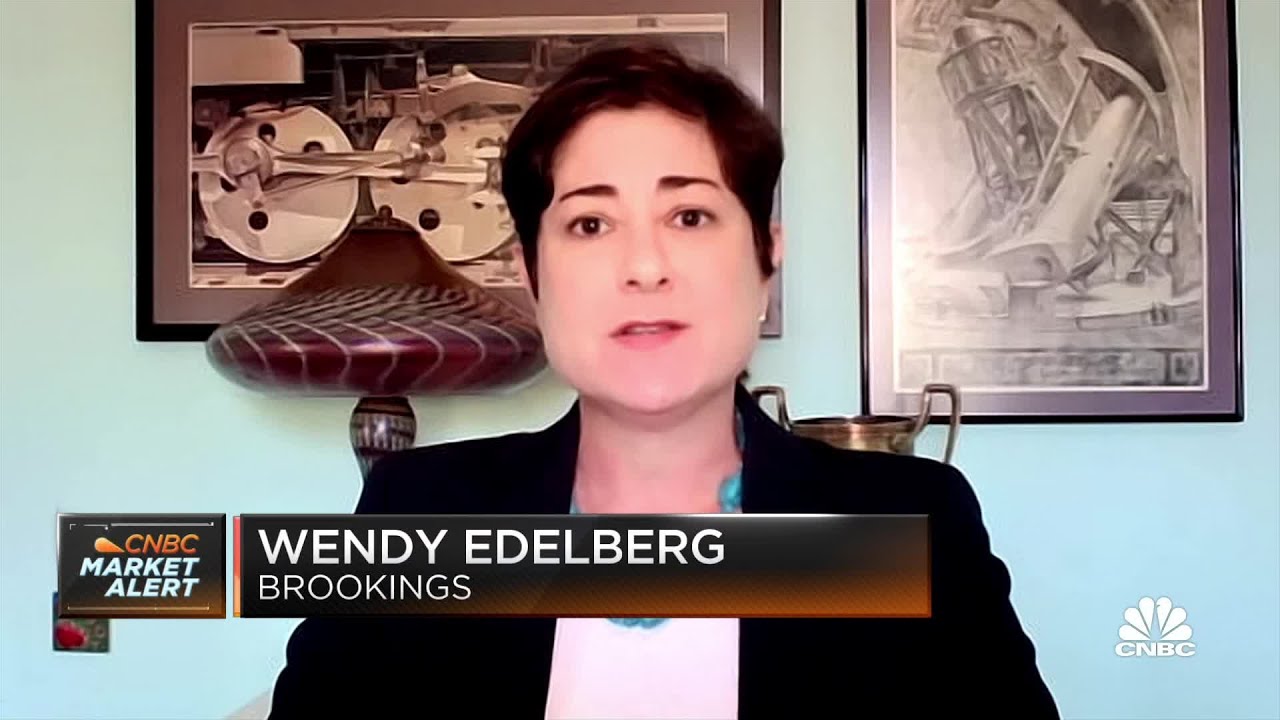Job Gains And Inflation Both Have To Slow To Avoid Recession, Says Brookings’ Wendy Edelberg
Unleash Your Creative Genius with MuseMind: Your AI-Powered Content Creation Copilot. Try now! 🚀
In these uncertain times, it's easy to find doom sayers predicting the downfall of our economy. But amidst all the negativity, there are few voices that offer a soothing perspective. One such voice is Wendy Edelberg, Director of the Hamilton Project and former CEA Chairman. She believes that while the labor market may be slowing down, there is still hope for a soft landing.
The pace of job gains in the past three months has been slower than expected, and when we take into account the impact of the pandemic and reduced immigration, the size of the labor force is estimated to be about a million smaller than it would have been otherwise. Some people argue that the labor market has fully recovered, but Wendy disagrees. She believes that these claims are based on complicated data revisions that can be misleading.
However, there is a silver lining in this situation. Slower job growth can help control inflation and bring it down. It's a delicate balance between maintaining a strong economy and keeping inflation under control. And if we can achieve both, then we can have a soft landing.
Lagging Indicators: Jobs and Wages
One interesting aspect that Wendy points out is that there are cycles where the job market lags behind other economic indicators. Wages tend to lag as well, along with employment rates. This lag can be seen in real activity, where hours worked are decreasing and productivity is presumed to be declining as well.
But despite these challenges, there are signs of progress. Real output in the goods-producing sector is showing improvement, and there is some progress in controlling inflation as well. Wendy mentions that she's eagerly awaiting the retail sales numbers because they provide valuable insights into real purchases and consumer behavior.
The Fed's Dilemma: To Keep Going or Not?
One question that arises from this discussion is whether the Federal Reserve should continue its current course if interest rates have already peaked. After all, if they can't budge rates any further, why keep going? Some argue that it's for psychological reasons, to fight inflation and show that they are staying the course.
However, Wendy disagrees with the notion that interest rates have peaked. She believes that the liquidity injected into the economy is a positive factor for inflation. While there may be some panic in the short term, she predicts that yields will eventually go back up to pre-panic levels.
The Importance of Published Inflation Data
So, what should the Fed do next?

Related Recaps
- 2023 Lamborghini Huracan Sterrato | Review & Off-Road Test
- HOT BABES IN BIKINIS! SOUTH BEACH SUMMER 2023 | Miami Boat Life | Boat Zone Collab
- 🔴🅻🅸🆅🅴 || ஜெபிக்கலாம் வாங்க! || Jebikalam Vaanga || 25 March, 2023
- Peppa Pig Tales 🐷 Peppa And George Make Valentines Day Pizzas 🐷 BRAND NEW Peppa Pig Episodes
- Dealing with Hair Loss from Cancer Treatment